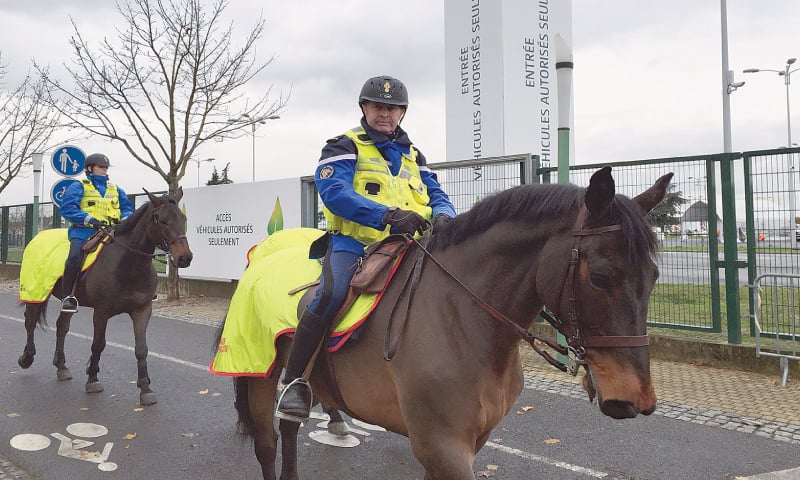THIS ought to have been an excruciatingly embarrassing time for Najib Razak, Malaysia’s scandal-engulfed prime minister, to meet the leaders of the free and not-quite-so free world. The development fund he helped set up, 1Malaysia Development Berhad, is linked with multiple international probes into suspicious transactions. Weighed down by $11bn in debt, it is fighting to stay afloat.
Instead, Mr Najib, fresh from the glow of finding $700m from an unnamed Middle Eastern donor in his personal bank account, appeared to relish the chance of hosting the US president and Chinese premier, both of whom were in Kuala Lumpur last week to attend regional gatherings.
As well he might. Barack Obama, who badly needs Mr Najib to support a broad agenda, from counter-terrorism to free trade, went decidedly easy on a leader who stands accused of misappropriating state funds on a massive scale. Among other things, Mr Obama praised Malaysia as being ‘extraordinarily helpful’ in fighting Isis with a counter-narrative of moderate Islam. He also acknowledged Malaysia’s importance as a signatory of the Trans-Pacific Partnership, a trade pact that Washington hopes will bind it to the world’s most dynamic region and complement its much-discussed (though not-so-much enacted) military pivot to the Pacific.
Li Keqiang, the Chinese leader, went one better. He showered Mr Najib with gifts — as if $700m was not enough. State-owned China General Nuclear Power Group coughed up $2.3bn to buy energy assets belonging to 1MDB, thereby relieving its debt misery. Mr Li talked glowingly about the potential for other big Chinese investments, including a planned high-speed rail link from Kuala Lumpur to Singapore. The two traded purchases in each other’s debt as lovers might trade poems.
This sort of soft commercial tussle, though less headline-grabbing than scraps over artificial islands in the South China Sea, may turn out to be more significant. If Washington has the TPP, Beijing has the Regional Comprehensive Economic Partnership
The usual view of China’s rise is that it presents Asian countries with a tough choice. How, for example, should Australia balance its commercial interests with China, by far its biggest trading partner, against its deep security interests with the US? The answer is that it is not always easy. Australia, whose 24 years of recession-free growth owes much to China’s hitherto voracious demand for commodities, has a sometimes tetchy relationship with its economic benefactor. Sydney has been wary about Chinese investments in farmland, telecommunications and minerals.
Yet for less well-off countries there may be an alternative: play one off against the other for the best possible deal. A case in point is Pakistan. An on-again, off-again ally of Washington, Islamabad has consistently stuck close to Beijing. It has been rewarded with the promise of huge investments in its rickety power and transport sectors. China has talked grandiosely of building an 1,800 mile-long corridor linking Pakistan’s deep-sea port at Gwadar to its own restless Xinjiang region. If even a fraction of the $46bn Beijing has flashed comes good, it could be transformative.
Indonesia, too, has been canny. Recently, it played off China against not the US but Japan. After years of talking to Tokyo about a $5bn bullet train, at the last minute Jakarta took the Chinese shilling. Beijing offered a financing deal too good to pass up. Wrongfooted Japanese diplomats promised to redouble efforts to win the Kuala Lumpur-Singapore rail link also in Beijing’s sights.
This sort of soft commercial tussle, though less headline-grabbing than scraps over artificial islands in the South China Sea, may turn out to be more significant. If Washington has the TPP, Beijing has the Regional Comprehensive Economic Partnership. The US has the World Bank and Asian Development Bank. Now Beijing has the Asian Infrastructure Investment Bank, which could start funding projects next year.
Beijing’s trump card may be its One Belt, One Road plan to link China to Europe and the Middle East via railways, roads and ports spanning central Asia and the Pacific and Indian oceans. For the multiple countries that lie along those routes, from Myanmar and Kazakhstan to Indonesia and Sri Lanka, there is money and concrete to be had. And money talks. Even the UK is not immune to the pull of China’s red dollar.
Money can only buy you so much. Myanmar, Sri Lanka and the Philippines have each resisted the gravitational pull of China. Myanmar’s political reform and overtures to Washington were driven by the generals’ fear of being beholden to Beijing. Sri Lanka’s voters kicked out former president Mahinda Rajapaksa because he was seen to have cosied up too closely to China. And the Philippines has put its security concerns ahead of its economic ones, risking Chinese wrath (and banana boycotts) by taking Beijing to international court over a sovereignty dispute.
Yet the battle is on for the hearts and minds of Asia. It will be won as much by engineers as by military strategists.
Published in Dawn, Business & Finance weekly, November 30th, 2015














































